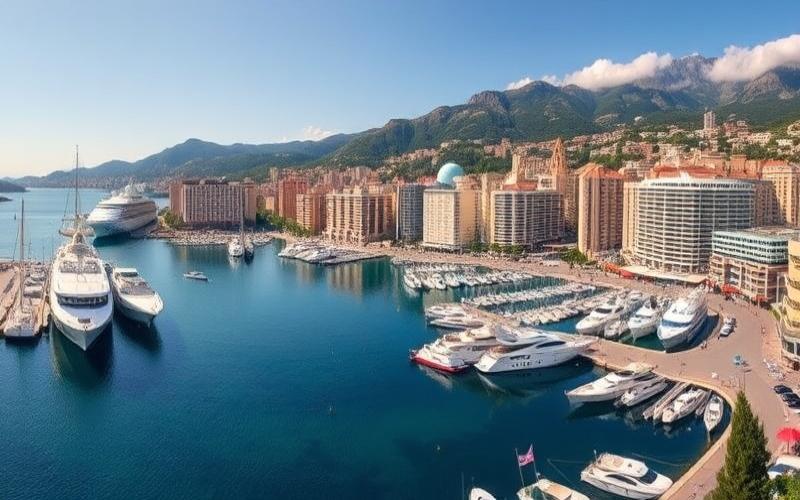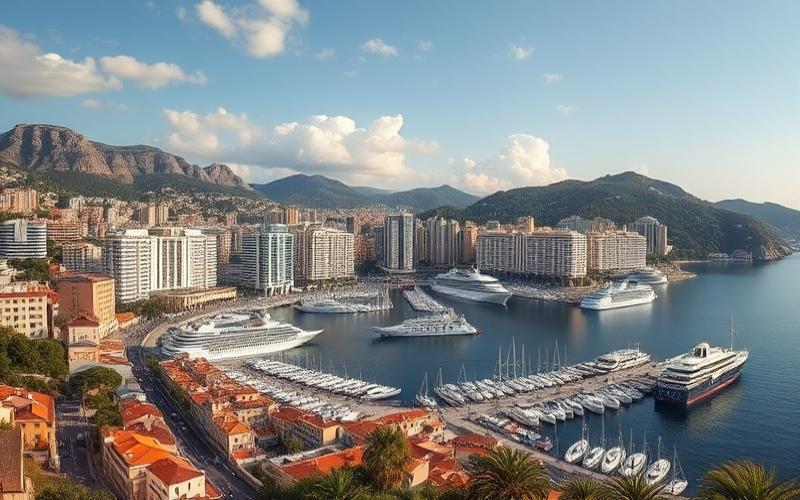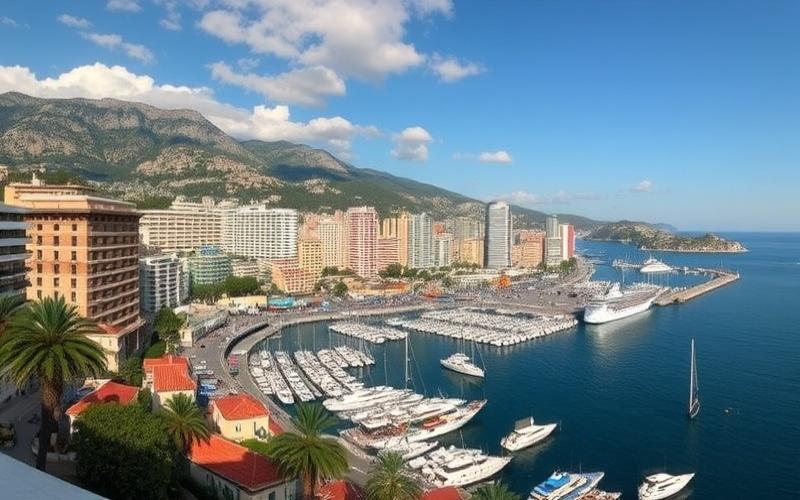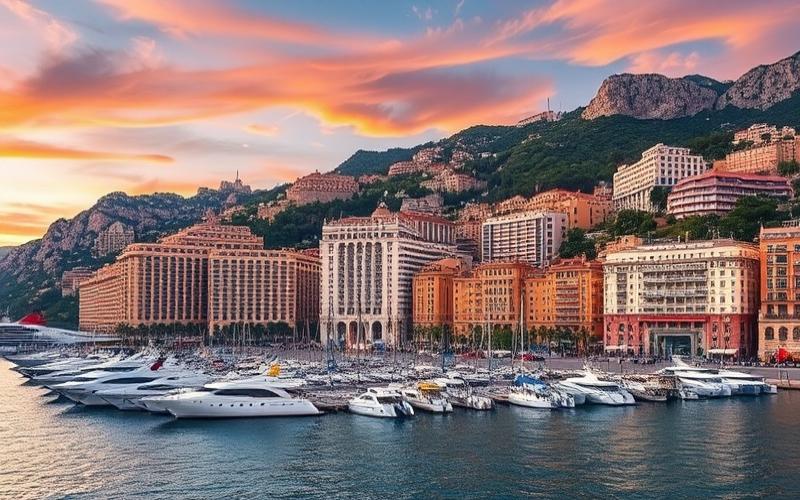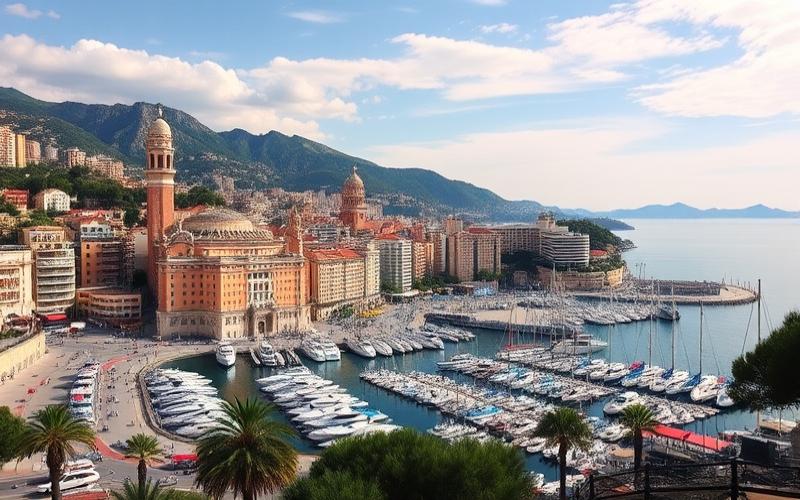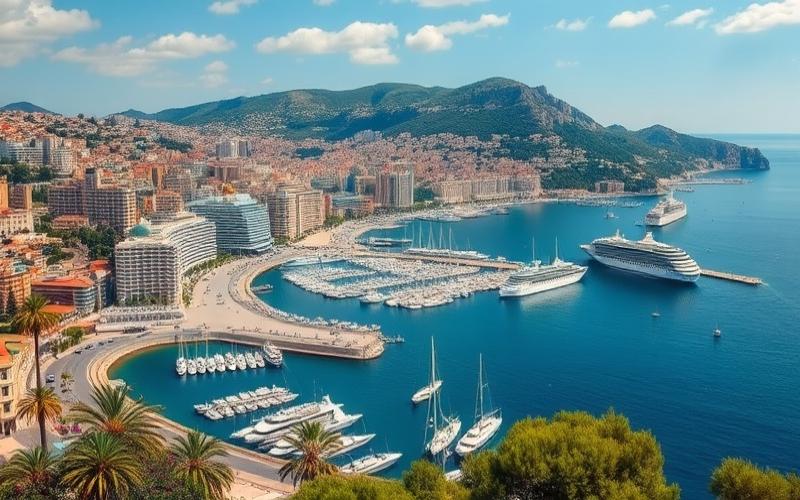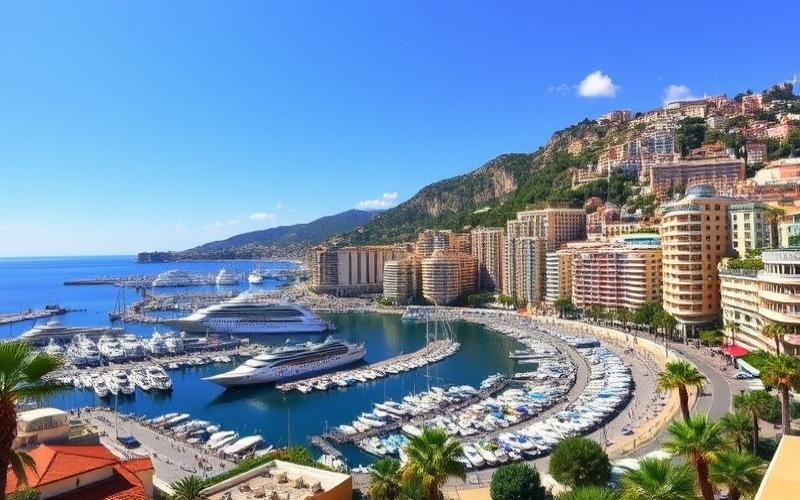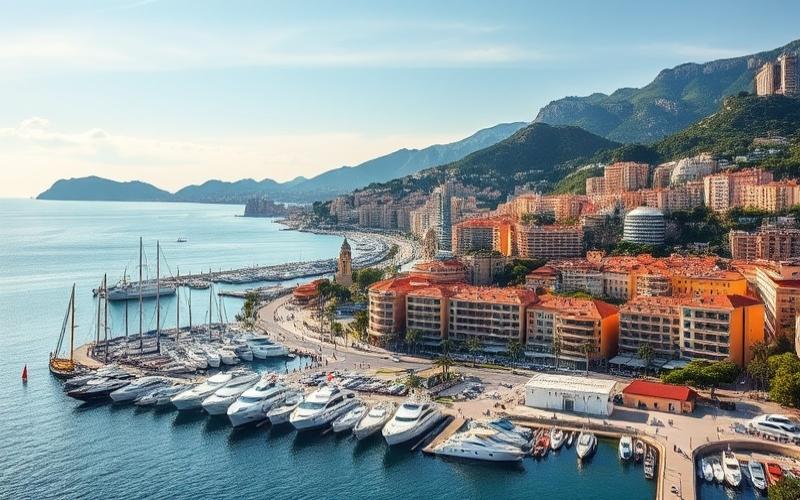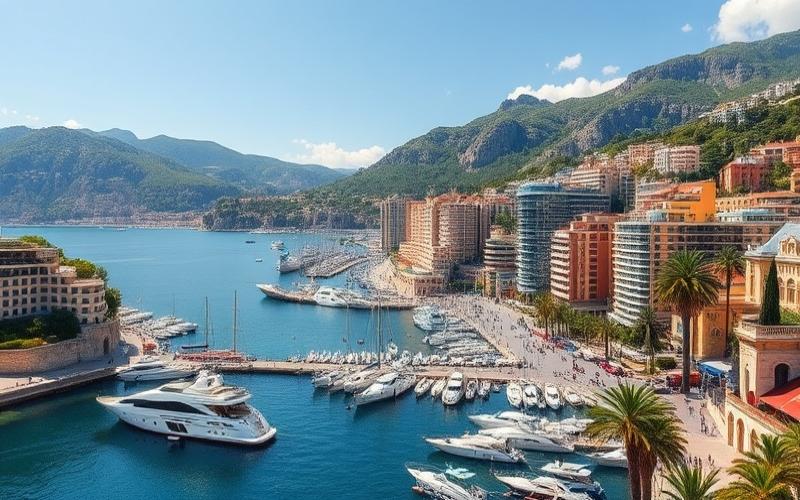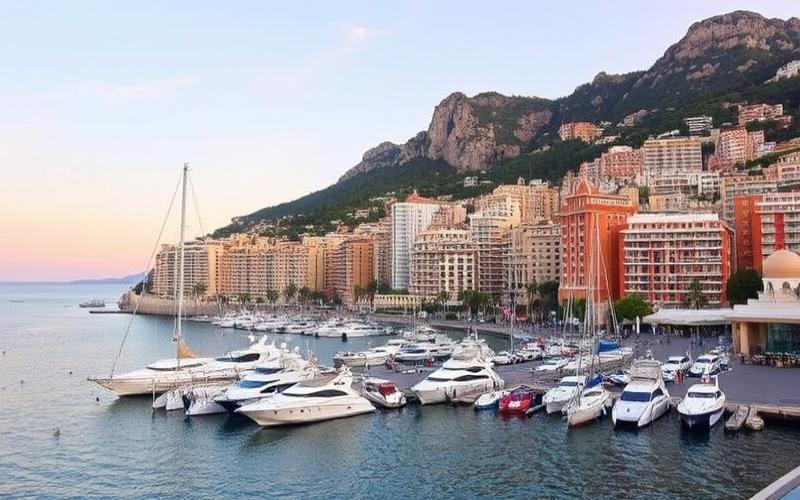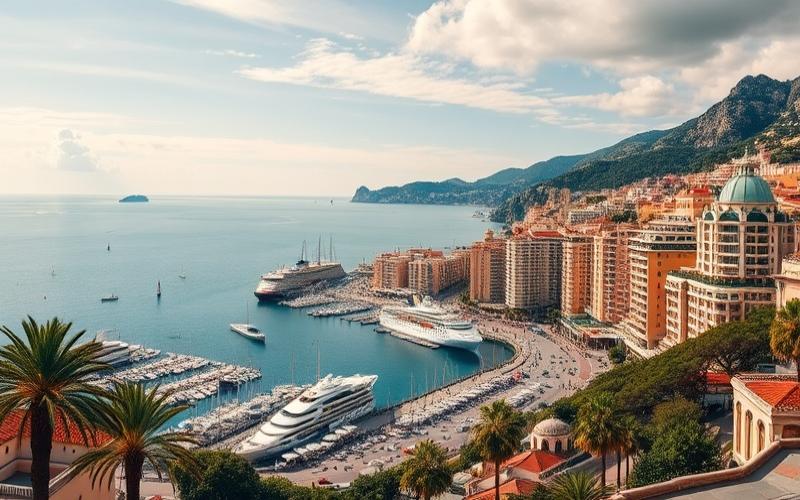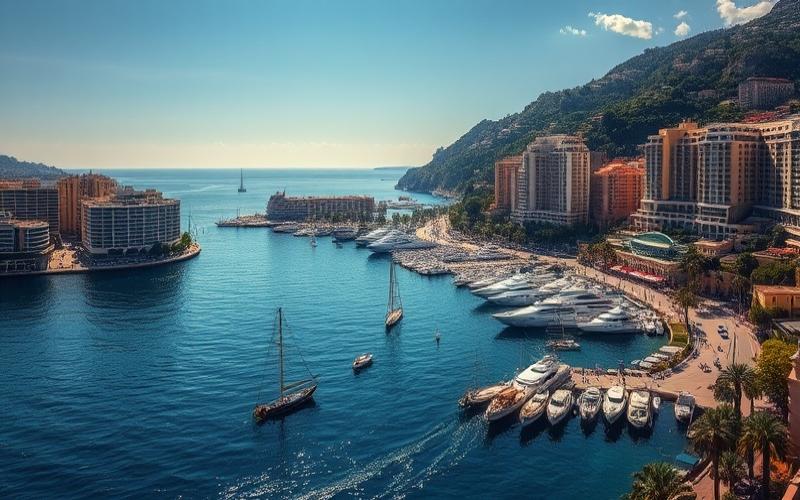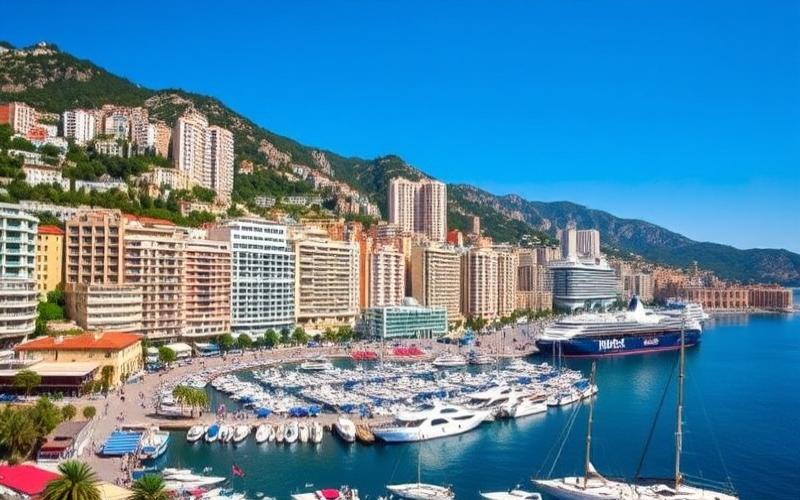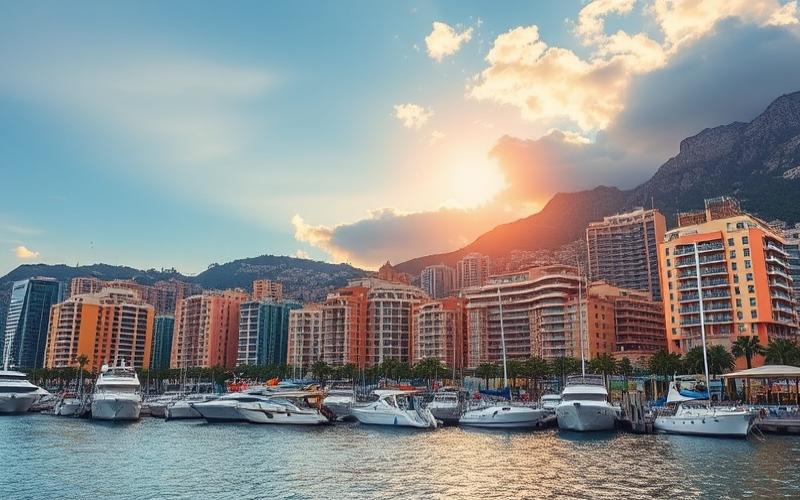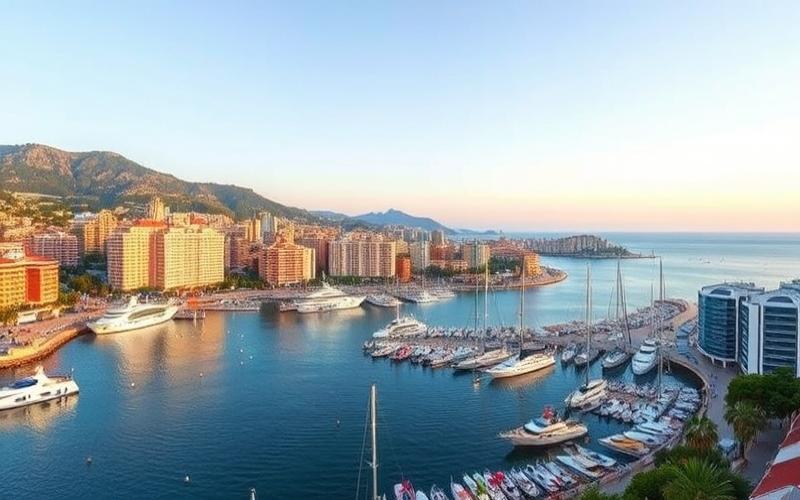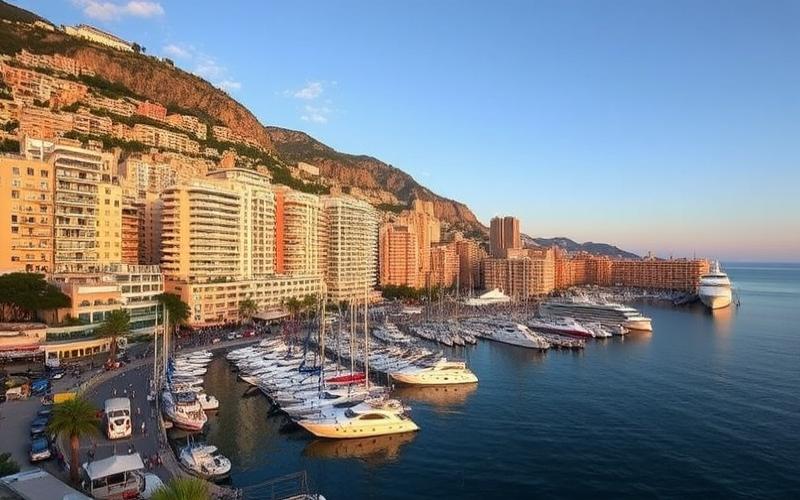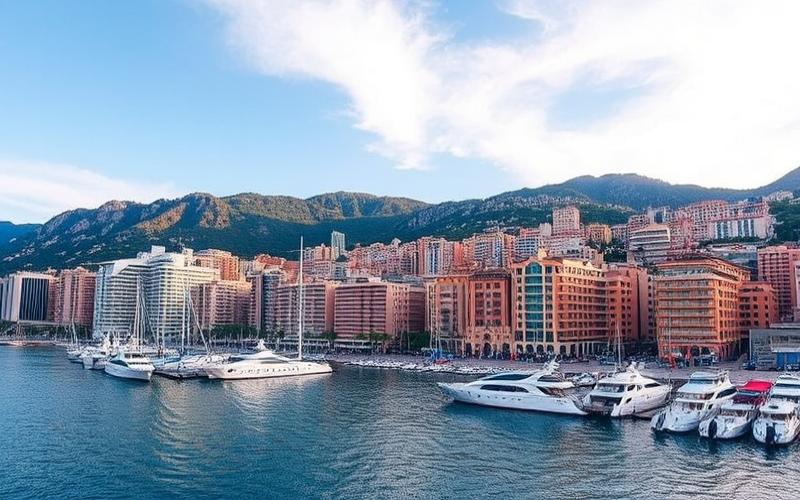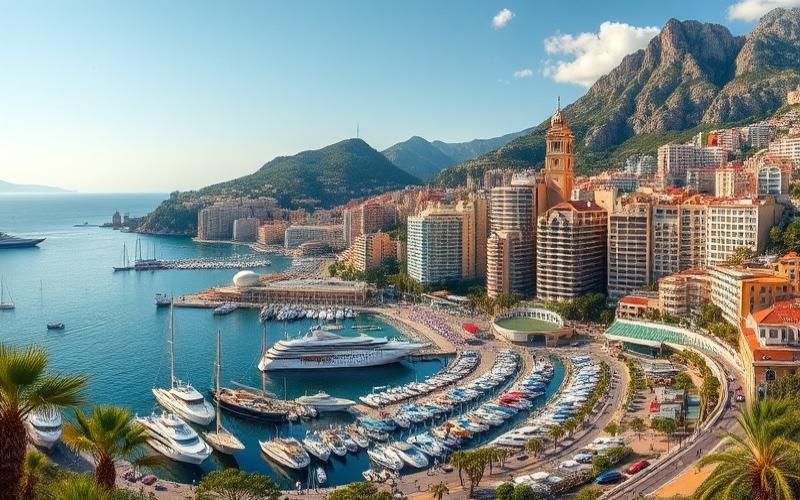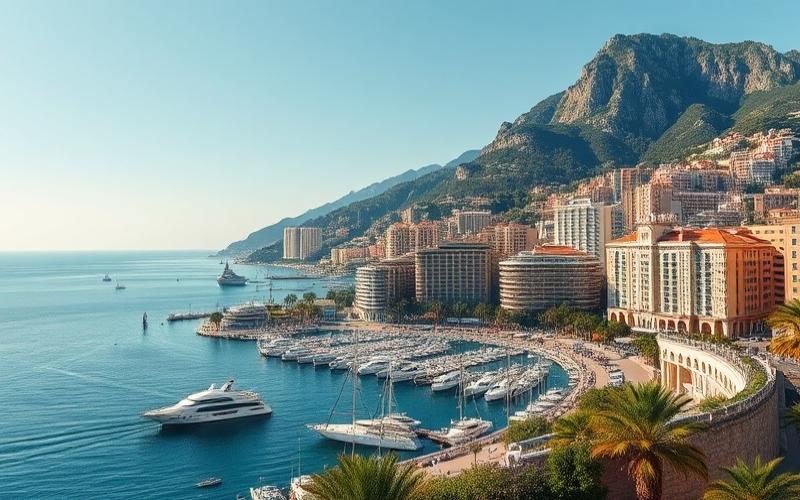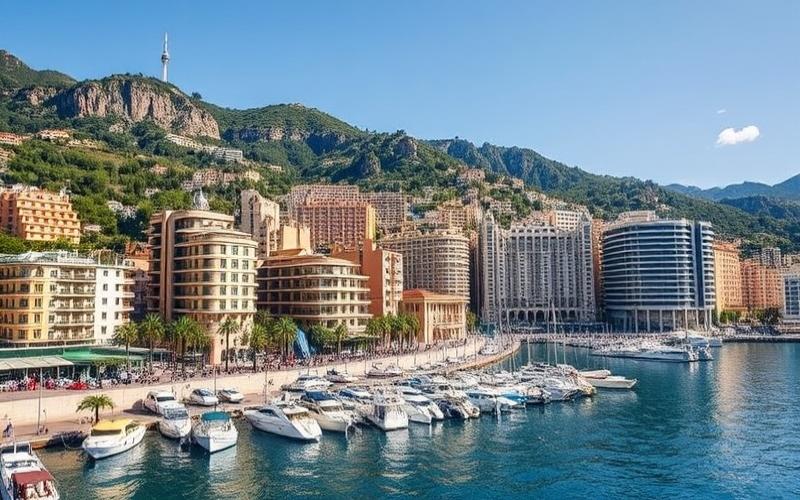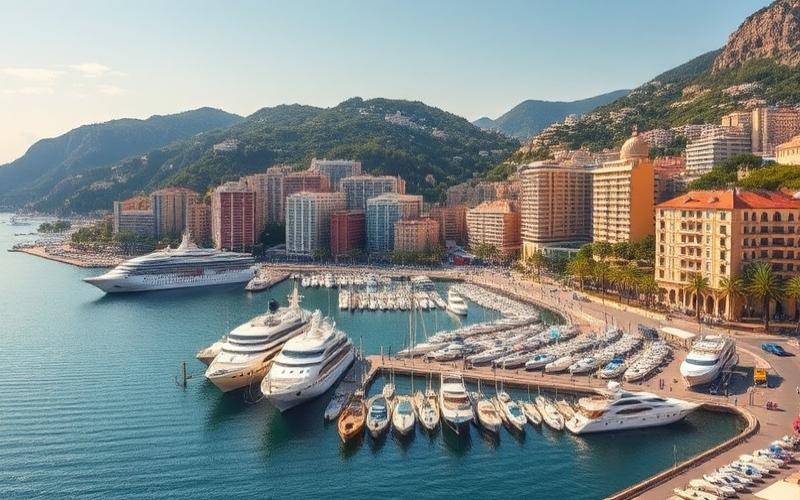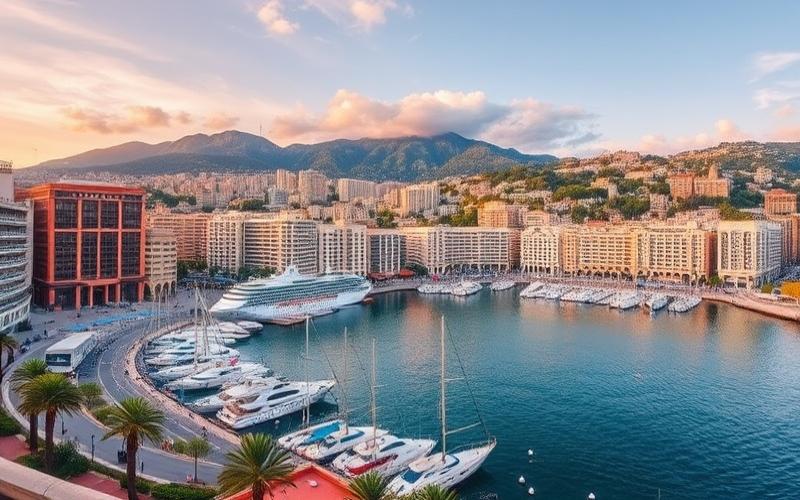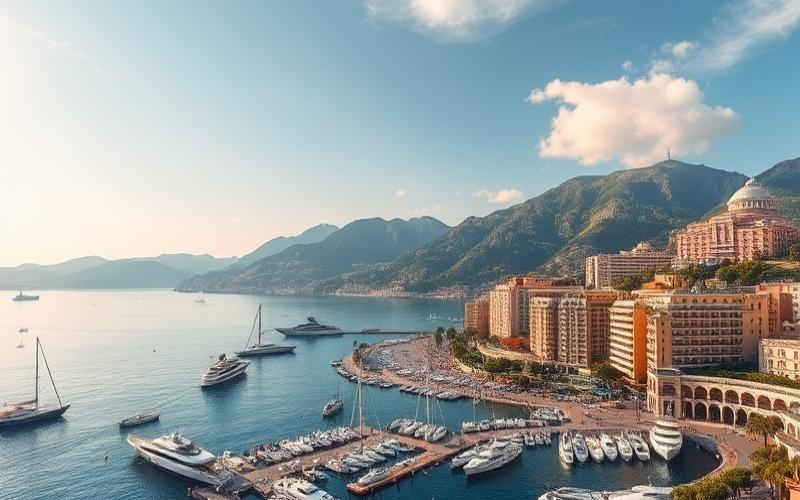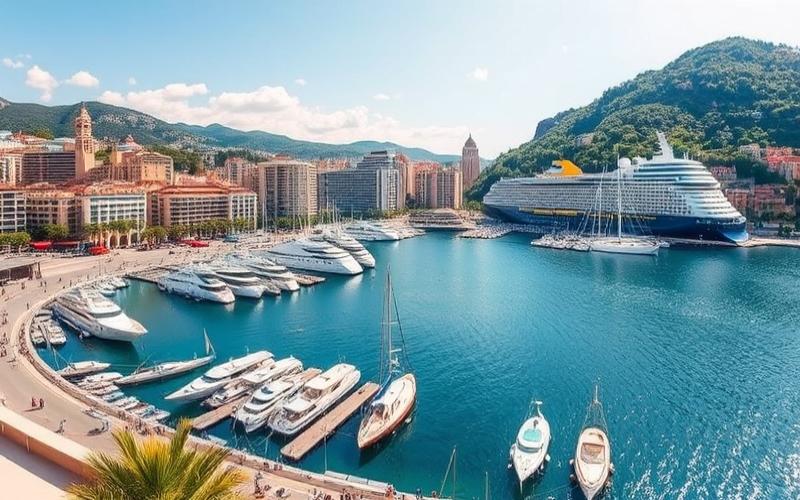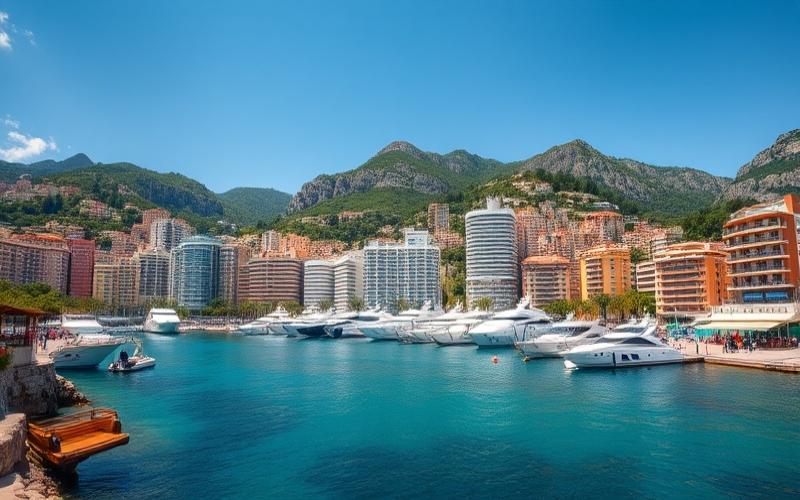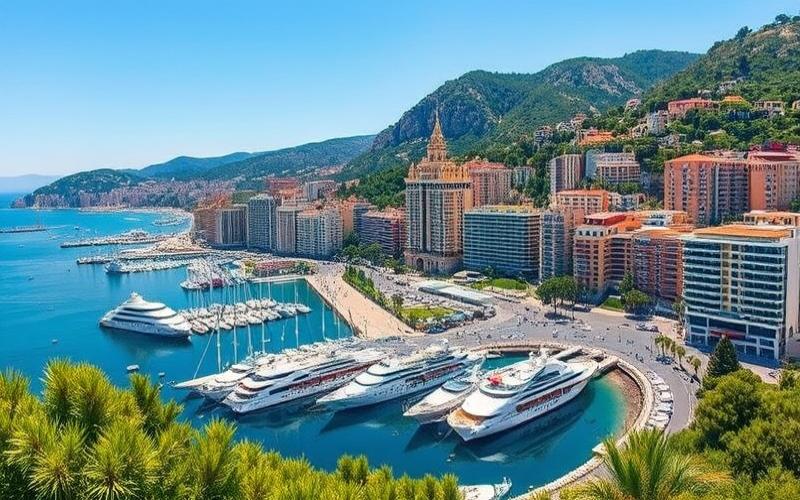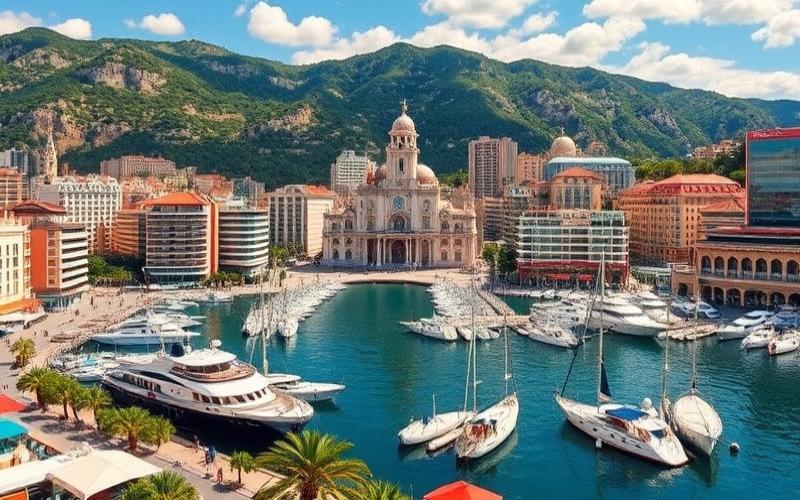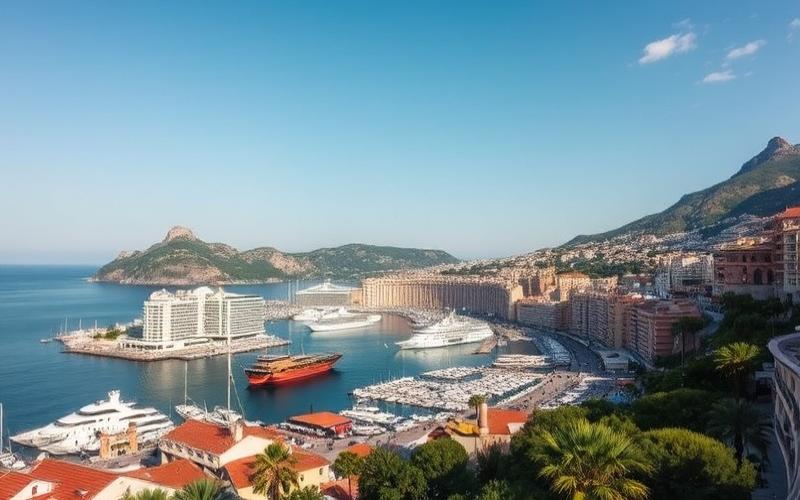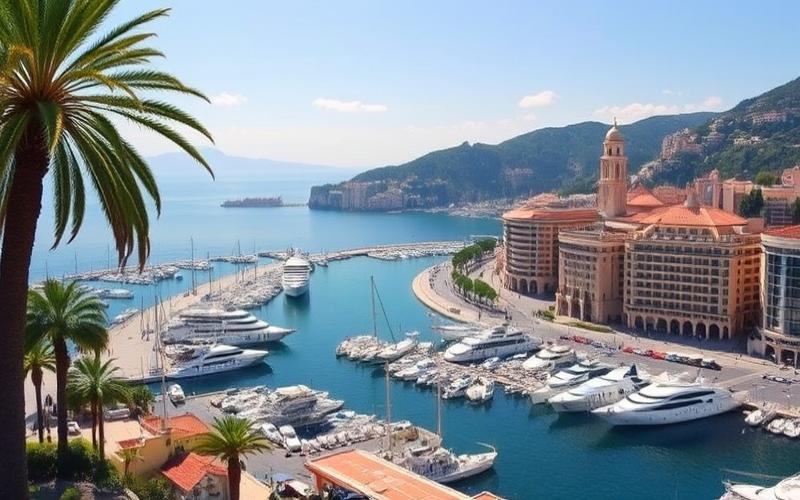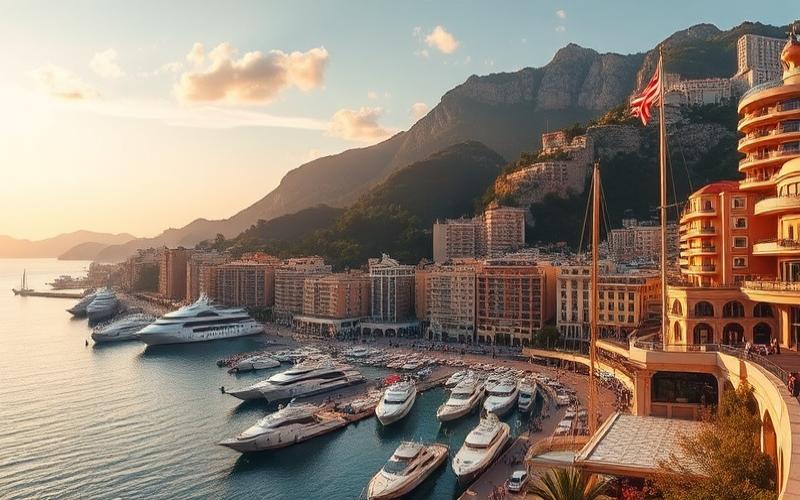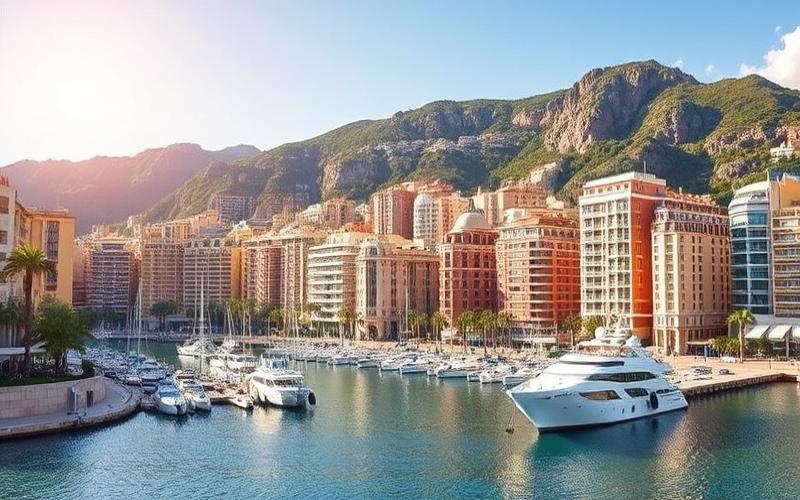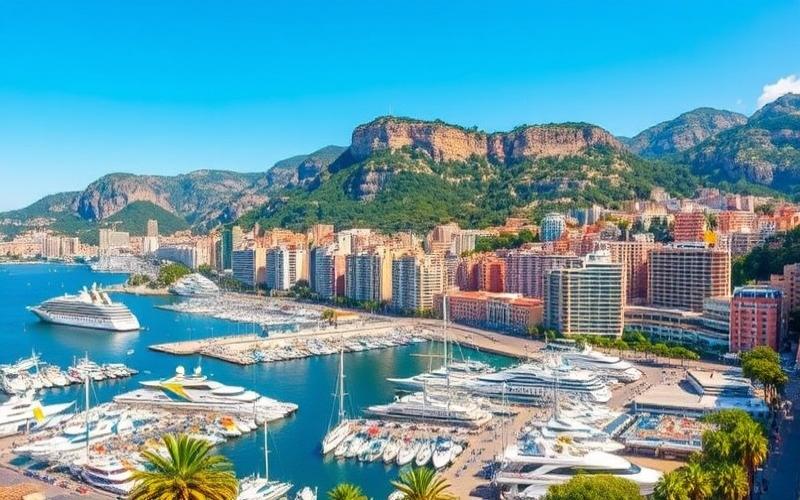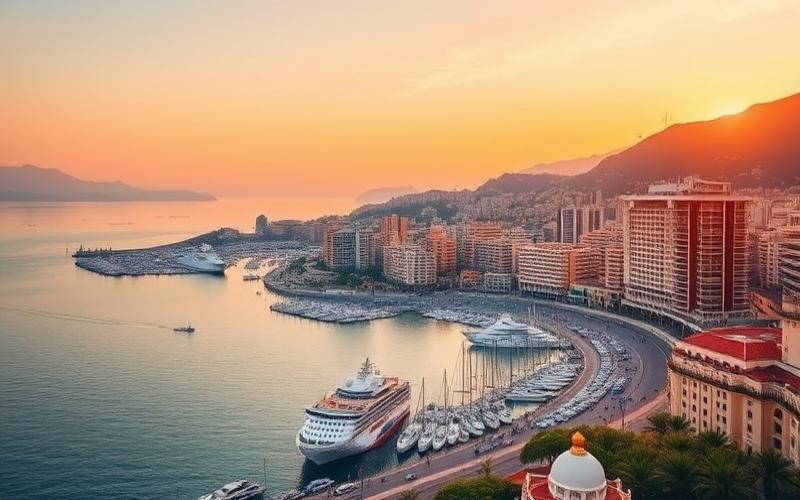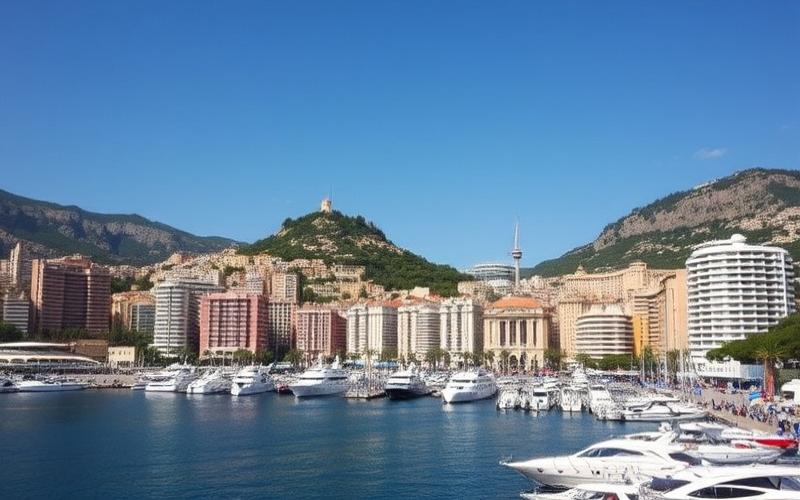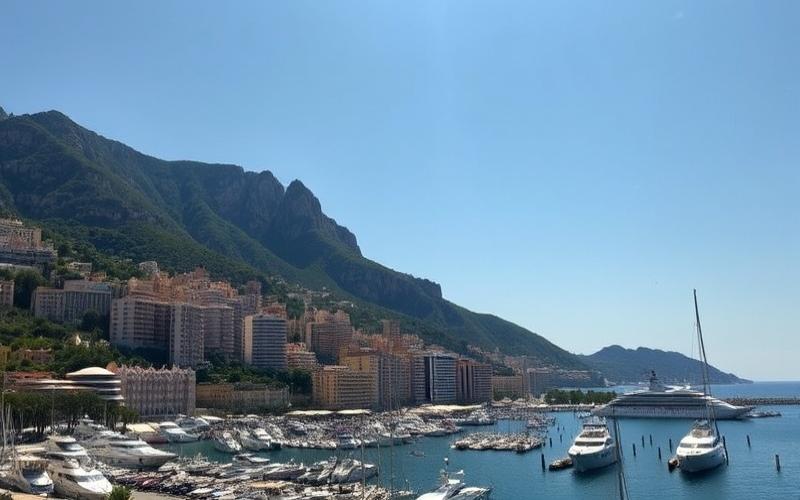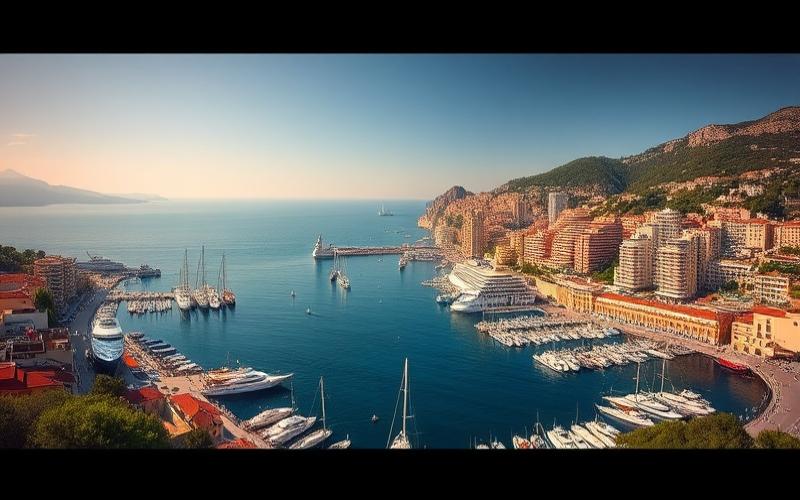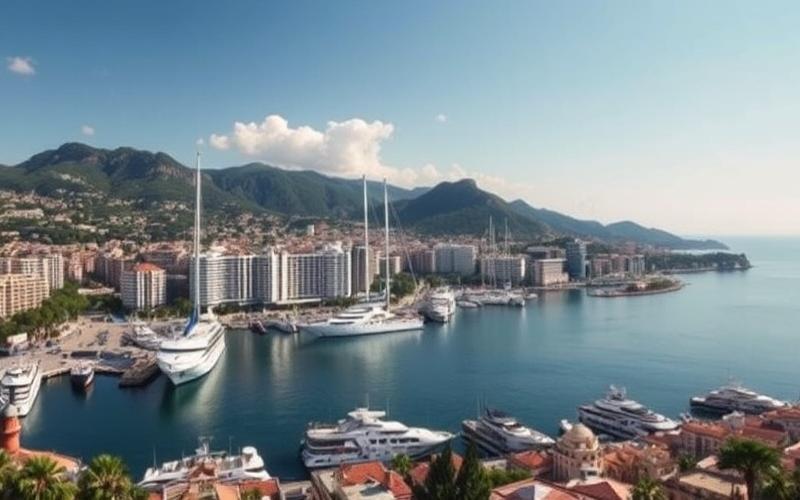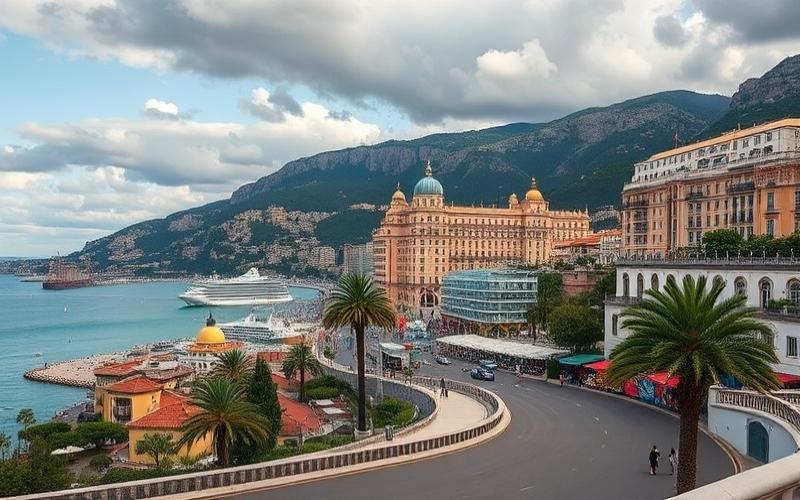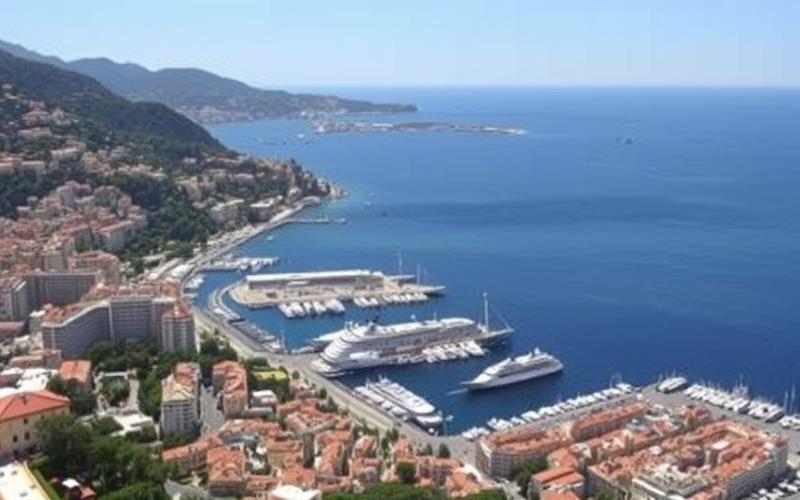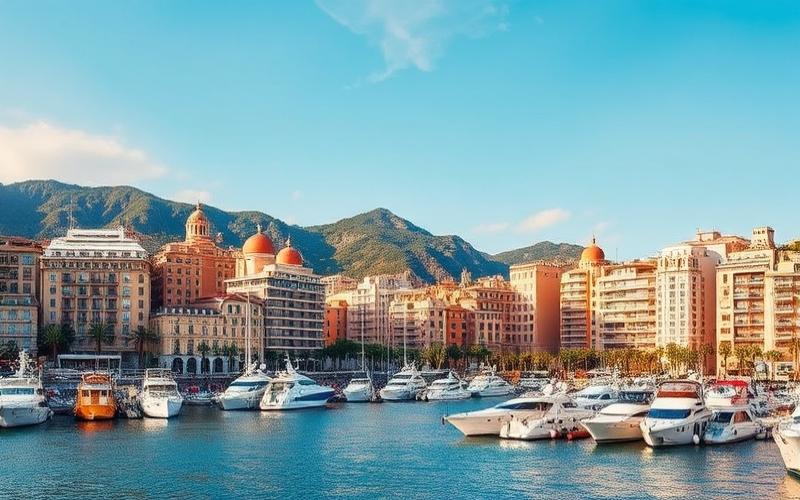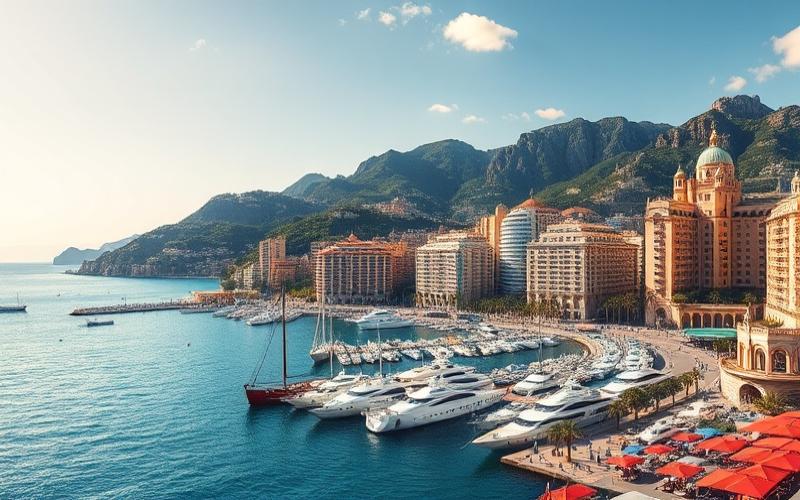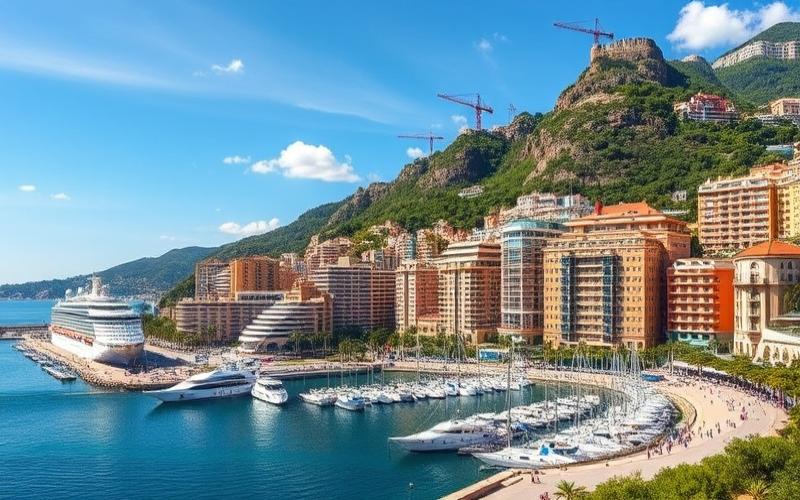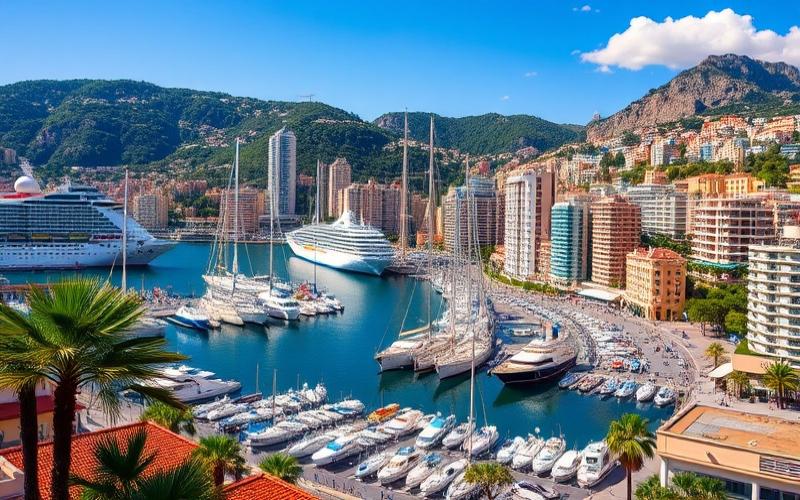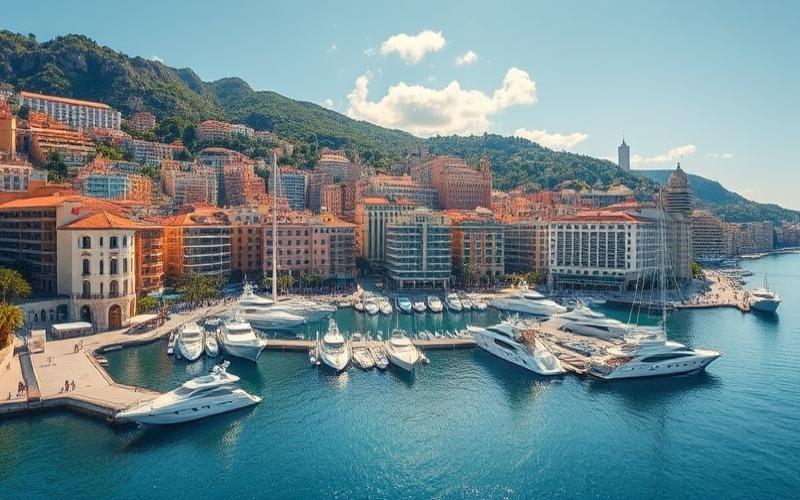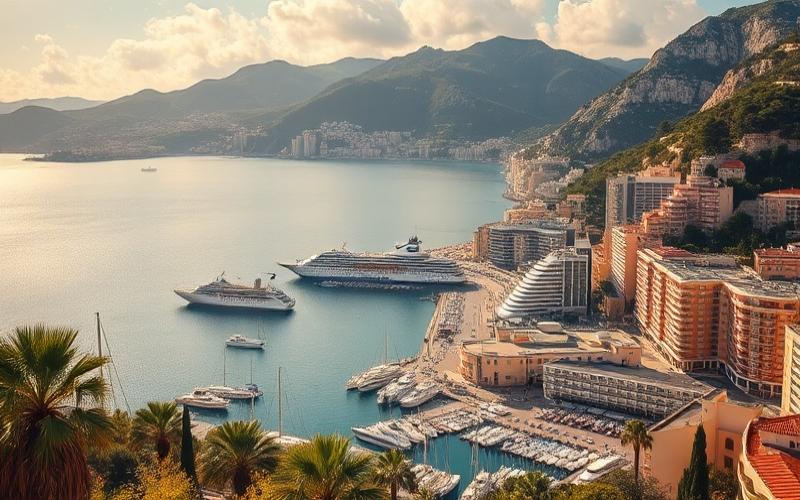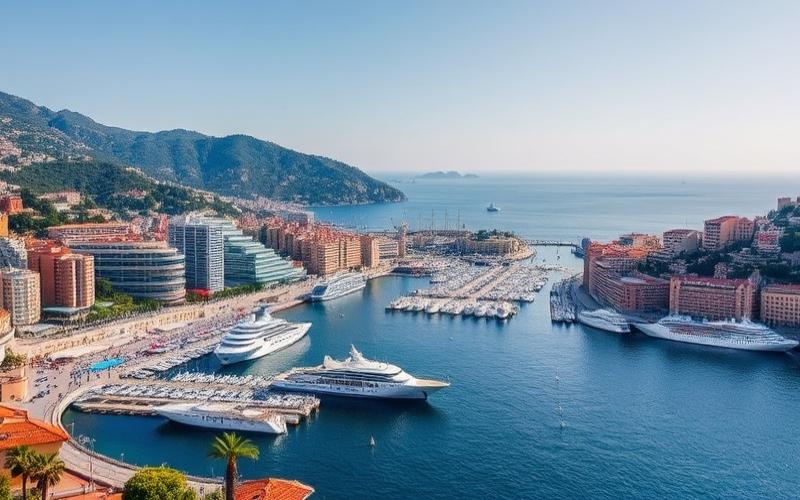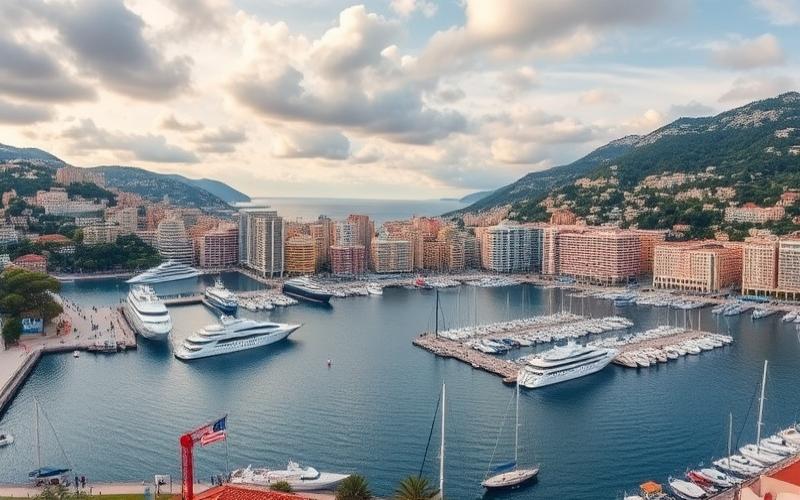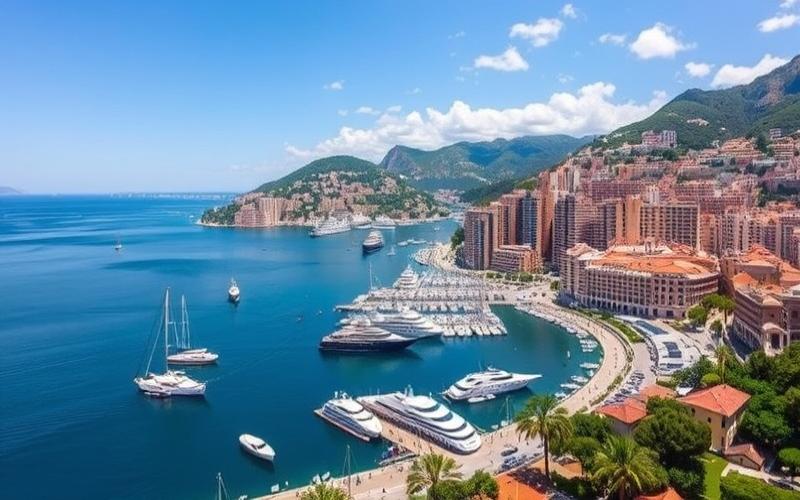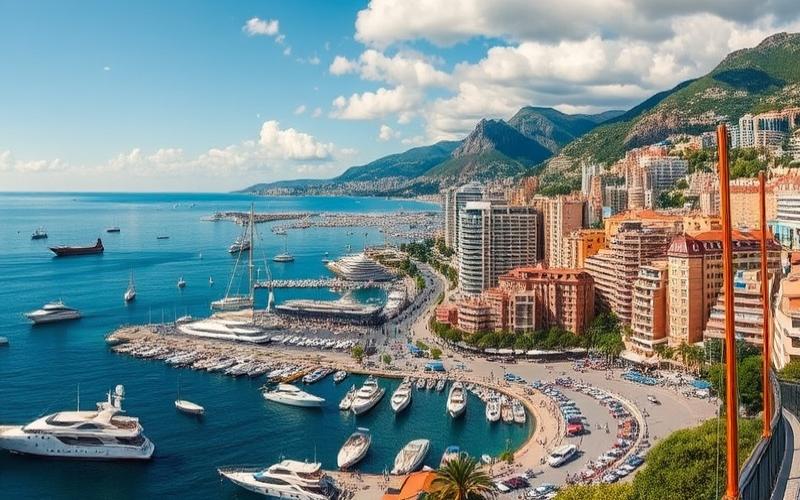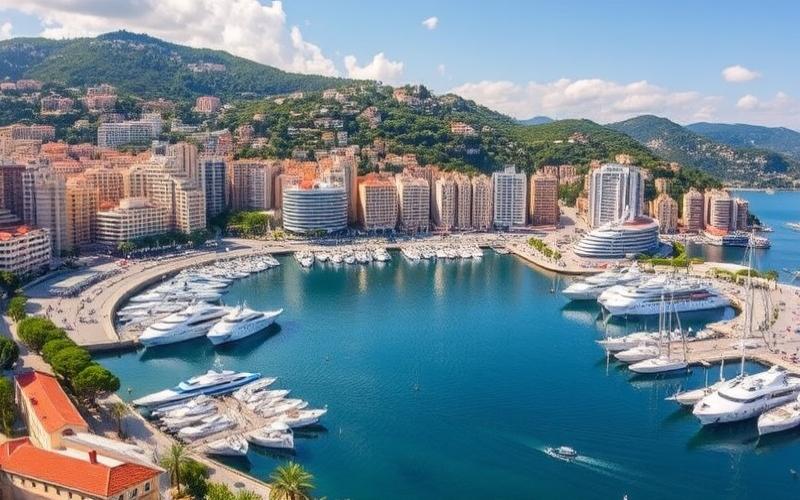
 Published on and written by Cyril Jarnias
Published on and written by Cyril Jarnias
Monaco Real Estate Faces the Emergence of “Dark Stores”
Monaco’s real estate, already known for its exorbitant prices and highly competitive market, is undergoing a quiet yet significant transformation with the emergence of “dark stores”—urban warehouses invisible to the general public but essential for digital commerce.
As residential spaces shrink and every square meter is fiercely contested, these discreet facilities are multiplying at a steady pace, redefining the use and distribution of real estate assets in the principality.
Good to Know:
“Dark stores” are logistics spaces dedicated to preparing online orders, with no physical customer service.
This phenomenon, still underreported, raises crucial questions about Monaco’s urban future and its adaptation to modern commerce requirements, thus attracting attention from investors, urban planners, and citizens eager to understand the long-term implications of this real estate shift.
Challenges of Logistics Real Estate in Monaco
Monaco’s unique geographical position, nestled between sea and mountains on barely 2 km², creates extreme scarcity of available land. This spatial constraint makes establishing new logistics infrastructure particularly difficult and significantly drives up acquisition and development costs. The priority given to traditional residential or commercial uses intensifies pressure on the logistics market, with increased risk of urban saturation if development is unregulated.
Urban policies in Monaco impose strict construction rules, both to preserve architectural identity and manage urban density. Obtaining administrative permits is lengthy and complex, forcing developers to integrate regulatory requirements early in their logistics real estate projects. Additionally, any new establishment must obtain a specific commercial license.
Main Regulatory Challenges in Monaco:
- Scarcity of buildable land
- Strong architectural constraints
- Lengthy administrative procedures
- Requirement for prior commercial license
Growing demand for distribution centers is fueled by rapidly evolving consumption habits, particularly due to online commerce and accelerated development of “dark stores.” These new models require:
- Precise stock management to ensure speed without shortages
- Constant optimization of last-mile logistics
| Factor | Main Consequence |
| E-commerce/Dark stores | Continuous increase in demand for urban platforms |
| Land saturation | Heightened pressure on industrial/logistics rents |
| New urbanity | Increased environmental risk (traffic/energy) |
Technological innovation proves essential for optimizing these constrained spaces: advanced digitalization, robotic automation (vertical storage), low-consumption equipment become indispensable to improve yield per square meter while controlling environmental impact. Energy certifications (HQE/BREEAM), photovoltaic panels, or smart systems are gradually integrated into new projects.
Monegasque authorities also encourage sustainable development through:
- Targeted tax incentives for eco-friendly buildings
- Active promotion of adaptable infrastructure scalable to sector needs
Recent or Planned Projects Likely to Transform the Sector:
- Targeted modernization/renovation of existing warehouses with advanced technology integration
- Possible “multi-use” development including commerce/urban logistics
- Selective redevelopment of industrial wastelands oriented toward green supply chain
Monegasque logistics real estate thus faces a complex interplay between spatial scarcity, growing economic pressures linked to new consumption patterns—and absolute necessity for technical innovation—all within a particularly demanding regulatory framework.
Good to Know:
Monaco, with its strategic geographical position but spatial limitations, faces unique challenges in the logistics real estate sector, where every square meter is crucial. Strict regulations and urban policies strongly influence infrastructure development, complicating the creation of new specialized spaces adapted to growing demand for distribution centers, amplified by the rise of “dark stores” and online commerce. Technological innovation and sustainable infrastructure play a key role in maximizing the efficiency of available logistics space, as shown by pioneering projects integrating vertical storage solutions and green technologies. Currently, innovative initiatives, such as underground logistics platforms, are being considered to transform Monaco’s logistics landscape while respecting the principality’s unique urban density constraints.
The Rise of Dark Stores in the E-commerce Sector
Dark stores are warehouses dedicated to preparing and shipping online orders. Unlike traditional stores, they receive no physical customers: their entire logistics are designed to optimize rapid processing of internet purchases.
Reasons for Rapid Development in Dense Urban Areas Like Monaco:
- Growth of e-commerce, especially since the Covid-19 pandemic, with increased demand for rapid home delivery.
- Growing urbanization: in highly densely populated cities like Monaco, where traditional commercial space is limited and expensive, the dark store model optimizes every available square meter.
- Mass adoption of smartphones and digital solutions facilitating instant purchases.
- Retailers seek to reduce operational costs (high rents for public-facing stores) while meeting expectations for speed and efficiency.
| Key Factors | Impact on Monaco |
|---|---|
| Urban density | Space optimization through conversion or creation of warehouses invisible to the public |
| High price per m² | Better profitability compared to traditional commerce |
| Consumer expectations | Ultra-fast delivery possible in a restricted territory |
Major Advantages for Consumers:
- Speed: express deliveries often possible in under an hour due to geographical proximity between warehouse and home
- Expanded product availability, including extended hours
- Reduced stock shortages through automated management
Concrete example (typical case in dense area):
“Dark stores and micro fulfilment centres are highly efficient small logistics hubs located strategically within or near urban centres.”
This model perfectly adapts to Monegasque constraints where every minute counts for demanding consumers.
Challenges Raised by This Trend:
- Pressure on already scarce land: conversion of commercial or artisanal premises into logistics zones closed to the public
- Risks of commercial impoverishment in certain neighborhoods if too many surfaces are converted
- Potential problems linked to increased logistics flows (motorized delivery drivers increasing urban traffic)
- Increased scarcity of commercial real estate open to the public
- Potential degradation of traditional commercial fabric
- Tensions with local policies aiming to preserve urban mix
| Advantages | Disadvantages |
|---|---|
| Very fast delivery | Fewer accessible commercial spaces |
| Optimized management | Increased traffic/logistics |
| Strong adaptation to e-commerce peaks | Risk of downtown dehumanization |
In Monaco, this phenomenon translates into constant adaptation: some operators now favor hybrid solutions combining connected pickup points and micro-warehouses to limit negative impact on the urban landscape while maintaining ultra-efficient service. Expected global growth (+40%/year until 2029) confirms these issues will be central both locally and internationally.
Good to Know:
Dark stores, designed to optimize e-commerce order preparation, are proliferating in Monaco where space is precious and demand for rapid deliveries is growing. These discreet yet efficient warehouses enable near-instant deliveries, a major advantage for busy Monegasque consumers. Their establishment is motivated by dense urbanization and increased demand for flexible e-commerce services. However, they pose urban planning challenges, particularly regarding saturation of commercial zones and pressure on the real estate market. A recent study shows a 30% increase in the number of dark stores in the country in 2023, illustrating their growing role in the local commercial landscape. These facilities, while beneficial for businesses and users, require regulation to avoid urban congestion and reduction of traditional commerce.
Impact of Dark Stores on Monaco’s Real Estate Market
The appearance of dark stores in Monaco, though recent and still marginal, marks a significant evolution for the local real estate market. These logistics spaces dedicated exclusively to preparing online orders are altering traditional dynamics of real estate supply and demand.
Effect on Real Estate Supply and Demand:
- Land scarcity in Monaco means any new usage type, like dark stores, directly competes with traditional residential or commercial uses.
- Installation of dark stores can intensify pressure on an already tight market where supply is structurally limited against very high demand.
- Property owners are sometimes incentivized to convert classic commercial or even residential spaces toward these logistics activities to capture new professional clientele.
Potential Impact on Prices:
| Segment | Expected Effect |
|---|---|
| Commercial real estate | Possible occasional increase if demand for adapted spaces rises (urban logistics), especially in certain strategic neighborhoods. |
| Residential real estate | Persistent upward pressure primarily linked to housing scarcity; limited direct effect from dark stores but potential tensions if mass conversions of buildings multiply. |
In 2025, the average price per square meter reaches approximately €51,967, representing continuous growth (+1.1% over one year). This record level mainly reflects chronic shortage of available space and the territory’s international appeal.
Implications for Real Estate Investors and Developers:
- Investors may see dark stores as a promising new segment offering potentially stable returns through long-term logistics contracts with e-commerce operators.
- For developers, these new uses create opportunities to valorize older or underutilized downtown buildings through transformation into modern urban hubs.
Challenges Faced by Property Owners and Tenants:
- Property Owners: delicate balance between immediate profitability (professional contracts) and preservation of patrimonial values (traditional commercial leases or housing).
- Tenants: risk of increased competition for access to rare well-located commercial spaces; possible concerns regarding increased proximity to logistics activities potentially generating nuisances (noise/deliveries).
“Dark stores raise questions about environmental impact, urban planning, and the rental market… This trend could transform the urban landscape… bringing unprecedented opportunities but also new challenges.”
Main Opportunities:
- Diversification of commercial real estate portfolio
- Potential valorization of vacant or obsolete premises
- Facilitated access to certain rapid urban services
Main Risks:
- Potential degradation of nearby residential environment if poorly regulated
- Additional speculation on certain property types
In a context where Monaco remains “the most expensive city in the world” with constant demographic growth (+1,059 inhabitants between 2016 and 2023), every square meter gains even more strategic value—whether dedicated to luxury residential or reinvented as next-generation logistics space.
Good to Know:
The emergence of dark stores in Monaco, intended to meet growing demand for rapid deliveries, has a notable impact on the Monegasque real estate market, influencing both supply and demand. These urban storage spaces, often located in key areas, tend to increase pressure on commercial real estate prices, thus limiting access to strategic locations for other businesses. For investors and developers, they offer diversification opportunities in an already tight market, but also pose challenges regarding optimization of available space usage. Although dark stores may free up space in residential areas by reducing the need for traditional physical stores, their presence can also intensify competition for scarce available premises, indirectly influencing residential prices. With Monaco being a restricted urban space, these changes encourage property owners and tenants to reconsider their investment and occupancy strategies. No specific Monegasque statistics are available, but the phenomenon is analogous to that observed in other metropolises with comparably saturated real estate markets, such as London or Paris.
Disclaimer: The information provided on this website is for informational purposes only and does not constitute financial, legal, or professional advice. We encourage you to consult qualified experts before making any investment, real estate, or expatriation decisions. Although we strive to maintain up-to-date and accurate information, we do not guarantee the completeness, accuracy, or timeliness of the proposed content. As investment and expatriation involve risks, we disclaim any liability for potential losses or damages arising from the use of this site. Your use of this site confirms your acceptance of these terms and your understanding of the associated risks.

